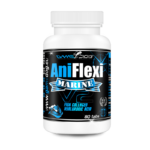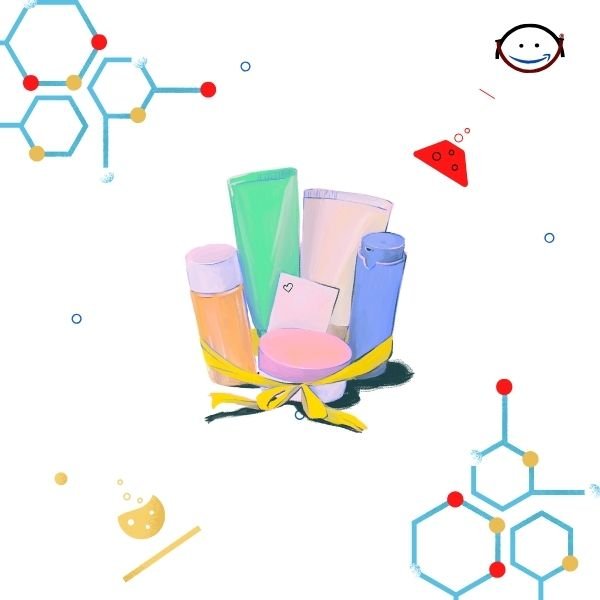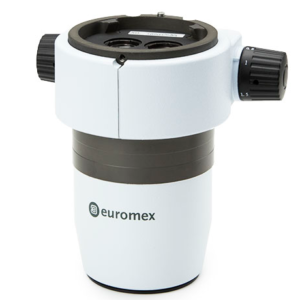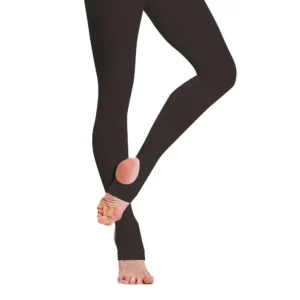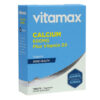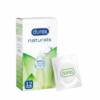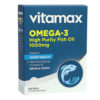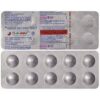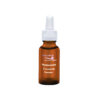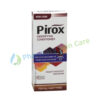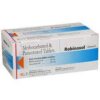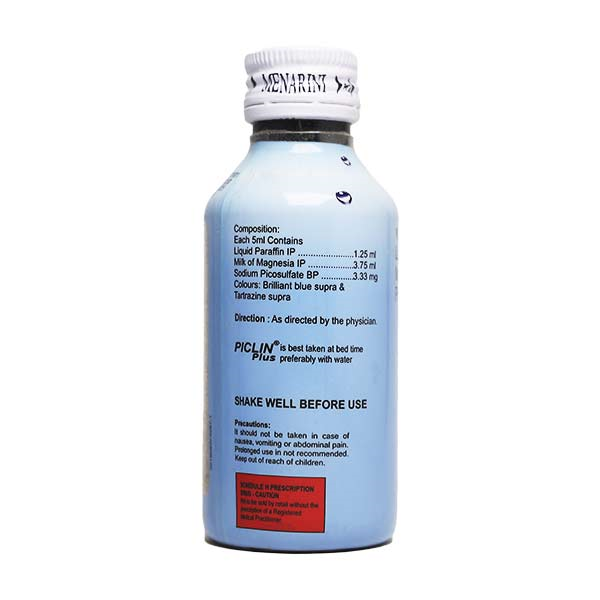-
Durex Naturals Condoms - 12 Pack ₦25,300.00 QTY: 1
-
Snack Cocco Enervit Protein 8x27g ₦17,556.00 QTY: 1
-
R PPI 20MG STRIP OF 10 TABLETS ₦1,155.00 QTY: 1
-
Perlamar Normalisante Concentrate Lotion 20 ml ₦48,604.80 QTY: 1
-
Pirox Conditioner 150ml ₦1,795.00 QTY: 2
-
CIPGEST 2MG TAB 10`S ₦12,389.00 QTY: 1
-
ANAFORTAN N TAB 10`S ₦1,576.25 QTY: 1
-
DUTAJOY 0.5MG STRIP OF 10 TABLETS ₦3,052.50 QTY: 1
-
ROBINAXOL TABLET ₦1,979.00 QTY: 1
-
Regaine 2% Topical Solution Men and Women 60 ml ₦80.00 QTY: 1
-
PICLIN PLUS SUGAR FREE COOL MINT AND CARDAMOM FLAVOUR Suspension 110ml ₦27,200.00 QTY: 1
Customer matched zone "Lagos Delivery Options"
Sort by:
103921–103936 of 372577 Results
-
SaleSku: 1737115557-6754
DYTOR PLUS LS TABLET 15?S
₦1,564.25Original price was: ₦1,564.25.₦1,290.50Current price is: ₦1,290.50.₦1,564.25Original price was: ₦1,564.25.₦1,290.50Current price is: ₦1,290.50. Add to basket Quick View -
SaleDytor 2.5 mgDytor 2.5 mg is indicated for the management of edema of cardiac, renal and hepatic origin.The management of hypertension, as a sole therapeutic agent or in combination with other classes of antihypertensive agents.Theropeutic ClassLoop diureticsPharmacologyDytor 2.5 mg inhibits the Na+/K+/2CI- carrier system (via interference of the chloride binding site) in the lumen of the thick ascending portion of the loop of Henle, resulting in a decrease in reabsorption of sodium and chloride. This results in an increase in the rate of delivery of tubular fluid and electrolytes to the distal sites of hydrogen and potassium ion secretion, while plasma volume contraction increases aldosterone production. The increased delivery and high aldosterone levels promote sodium reabsorption at the distal tubules, and By increasing the delivery of sodium to the distal renal tubule, Dytor 2.5 mg indirectly increases potassium excretion via the sodium-potassium exchange mechanism. Dytor 2.5 mg's effects in other segments of the nephron have not been demonstrated. Thus Dytor 2.5 mg increases the urinary excretion of sodium, chloride, and water, but it does not significantly alter glomerular filtration rate, renal plasma flow, or acid-base balance. Dytor 2.5 mg's effects as a antihypertensive are due to its diuretic actions. By reducing extracellular and plasma fluid volume, blood pressure is reduced temporarily, and cardiac output also decreases.Dosage & Administration of Dytor 2.5 mgCongestive heart failure: The usual initial oral dose is 10 mg or 20 mg once daily. If the diuretic response is inadequate, the dose should be titrated upward by approximately doubling until the desired diuretic response is obtained. Single doses higher than 200 mg have not been adequately studied.Chronic renal failure: The usual initial oral dose is 20 mg once daily. lf the diuretic response is inadequate, the dose should be titrated upward by approximately doubling until the desired diuretic response is obtained. Single doses higher than 200mg have not been adequately studied.Hepatic cirrhosis: The usual initial oral dose is 5 mg or 10 mg once daily, administered together with an aldosterone antagonist or a potassium sparing diuretic. If the diuretic response is inadequate, the dose should be titrated upward by approximately doubling until the desired diuretic response is obtained. Single doses higher than 40 mg have not been adequately studied. Chronic use of any diuretic in hepatic disease has not been studied in adequate and well-controlled trials.Hypertension: The usual initial oral dose is 2.5-5 mg once daily. If the 5 mg dose does not provide adequate reduction of blood pressure within 4 to 6 weeks, the dose may be increased to 10 mg once daily. If the response to 10 mg is insufficient, an additional antihypertensive should be added to the treatment regimen.Dosage of Dytor 2.5 mgCongestive heart failure: The usual initial oral dose is 10 mg or 20 mg once daily. If the diuretic response is inadequate, the dose should be titrated upward by approximately doubling until the desired diuretic response is obtained. Single doses higher than 200 mg have not been adequately studied.Chronic renal failure: The usual initial oral dose is 20 mg once daily. lf the diuretic response is inadequate, the dose should be titrated upward by approximately doubling until the desired diuretic response is obtained. Single doses higher than 200mg have not been adequately studied.Hepatic cirrhosis: The usual initial oral dose is 5 mg or 10 mg once daily, administered together with an aldosterone antagonist or a potassium sparing diuretic. If the diuretic response is inadequate, the dose should be titrated upward by approximately doubling until the desired diuretic response is obtained. Single doses higher than 40 mg have not been adequately studied. Chronic use of any diuretic in hepatic disease has not been studied in adequate and well-controlled trials.Hypertension: The usual initial oral dose is 2.5-5 mg once daily. If the 5 mg dose does not provide adequate reduction of blood pressure within 4 to 6 weeks, the dose may be increased to 10 mg once daily. If the response to 10 mg is insufficient, an additional antihypertensive should be added to the treatment regimen.Interaction of Dytor 2.5 mgIncreased risk of severe hypokalaemia with amphotercin B, corticosteroids, carbenoxolone, hypokalaemia-causing medications. Increased risk of lithium toxicity. Increased potential for ototoxicity and nephrotoxicity with nephrotoxic or ototoxic medications e.g. aminoglycosides. High dose salicylates may increase the risk of salicylate toxicity. Increased risk of toxicity with digoxin. Reduced diuretic effect with NSAIDs. Increased risk of hypotension with antihypertensives.ContraindicationsDytor 2.5 mg is contraindicated in patients with known hypersensitivity to Dytor 2.5 mg and other sulfonyl ureas. It is also contraindicated in patients who are anuric.Side Effects of Dytor 2.5 mgUsually Dytor 2.5 mg is well tolerated. However, a few side effects like dry mouth, dizziness, tiredness, skin rash, diarrhea, constipation, nausea, vomiting, orthostatic hypotention and muscle cramp may occur. All side effects usually are mild and transient.Pregnancy & LactationPregnancy: Adequate and well controlled studies of Dytor 2.5 mg have not been carried out in pregnant woman. Because animal reproduction studies are not always predictive of human response, Dytor 2.5 mg can be used during pregnancy only if clearly needed.Nursing Mother: lt is not known whether Dytor 2.5 mg is excreted in human milk. Because many drugs are excreted in human milk, caution should be exercised when Dytor 2.5 mg is administered to a nursing mother.Precautions & WarningsPrecautions should be taken while Dytor 2.5 mg is administered in the conditions like diabetes, gout, hypotension and liver failure.Overdose Effects of Dytor 2.5 mgThere is no human experience of overdoses of Dytor 2.5 mg, but the signs and symptoms of overdosage can be anticipated to be those of excessive pharmacological effect: dehydration, hypovolemia, hypotension and hypokalemia. Treatment of overdose should consist of fluid and electrolyte supplement.Storage ConditionsStore Dytor 2.5 mg at room temperature less than 30? C and keep in cool and dry place, away from moisture and sunlight. Keep the medicine out of the reach of children.Use In Special PopulationsUse in children: Safety and efficacy of Dytor 2.5 mg in children have not been established.Drug ClassesLoop diureticsMode Of ActionDytor 2.5 mg inhibits the Na+/K+/2CI- carrier system (via interference of the chloride binding site) in the lumen of the thick ascending portion of the loop of Henle, resulting in a decrease in reabsorption of sodium and chloride. This results in an increase in the rate of delivery of tubular fluid and electrolytes to the distal sites of hydrogen and potassium ion secretion, while plasma volume contraction increases aldosterone production. The increased delivery and high aldosterone levels promote sodium reabsorption at the distal tubules, and By increasing the delivery of sodium to the distal renal tubule, Dytor 2.5 mg indirectly increases potassium excretion via the sodium-potassium exchange mechanism. Dytor 2.5 mg's effects in other segments of the nephron have not been demonstrated. Thus Dytor 2.5 mg increases the urinary excretion of sodium, chloride, and water, but it does not significantly alter glomerular filtration rate, renal plasma flow, or acid-base balance. Dytor 2.5 mg's effects as a antihypertensive are due to its diuretic actions. By reducing extracellular and plasma fluid volume, blood pressure is reduced temporarily, and cardiac output also decreases.PregnancyPregnancy: Adequate and well controlled studies of Dytor 2.5 mg have not been carried out in pregnant woman. Because animal reproduction studies are not always predictive of human response, Dytor 2.5 mg can be used during pregnancy only if clearly needed.Nursing Mother: lt is not known whether Dytor 2.5 mg is excreted in human milk. Because many drugs are excreted in human milk, caution should be exercised when Dytor 2.5 mg is administered to a nursing mother.Pediatric UsesUse in children: Safety and efficacy of Dytor 2.5 mg in children have not been established.Sku: 1736106448-4150
Dytor2.5 mg
₦3,300.00Original price was: ₦3,300.00.₦2,970.00Current price is: ₦2,970.00.₦3,300.00Original price was: ₦3,300.00.₦2,970.00Current price is: ₦2,970.00. Add to basket Quick View -
SaleDytor 5 mgDytor 5 mg is indicated for the management of edema of cardiac, renal and hepatic origin.The management of hypertension, as a sole therapeutic agent or in combination with other classes of antihypertensive agents.Theropeutic ClassLoop diureticsPharmacologyDytor 5 mg inhibits the Na+/K+/2CI- carrier system (via interference of the chloride binding site) in the lumen of the thick ascending portion of the loop of Henle, resulting in a decrease in reabsorption of sodium and chloride. This results in an increase in the rate of delivery of tubular fluid and electrolytes to the distal sites of hydrogen and potassium ion secretion, while plasma volume contraction increases aldosterone production. The increased delivery and high aldosterone levels promote sodium reabsorption at the distal tubules, and By increasing the delivery of sodium to the distal renal tubule, Dytor 5 mg indirectly increases potassium excretion via the sodium-potassium exchange mechanism. Dytor 5 mg's effects in other segments of the nephron have not been demonstrated. Thus Dytor 5 mg increases the urinary excretion of sodium, chloride, and water, but it does not significantly alter glomerular filtration rate, renal plasma flow, or acid-base balance. Dytor 5 mg's effects as a antihypertensive are due to its diuretic actions. By reducing extracellular and plasma fluid volume, blood pressure is reduced temporarily, and cardiac output also decreases.Dosage & Administration of Dytor 5 mgCongestive heart failure: The usual initial oral dose is 10 mg or 20 mg once daily. If the diuretic response is inadequate, the dose should be titrated upward by approximately doubling until the desired diuretic response is obtained. Single doses higher than 200 mg have not been adequately studied.Chronic renal failure: The usual initial oral dose is 20 mg once daily. lf the diuretic response is inadequate, the dose should be titrated upward by approximately doubling until the desired diuretic response is obtained. Single doses higher than 200mg have not been adequately studied.Hepatic cirrhosis: The usual initial oral dose is 5 mg or 10 mg once daily, administered together with an aldosterone antagonist or a potassium sparing diuretic. If the diuretic response is inadequate, the dose should be titrated upward by approximately doubling until the desired diuretic response is obtained. Single doses higher than 40 mg have not been adequately studied. Chronic use of any diuretic in hepatic disease has not been studied in adequate and well-controlled trials.Hypertension: The usual initial oral dose is 2.5-5 mg once daily. If the 5 mg dose does not provide adequate reduction of blood pressure within 4 to 6 weeks, the dose may be increased to 10 mg once daily. If the response to 10 mg is insufficient, an additional antihypertensive should be added to the treatment regimen.Dosage of Dytor 5 mgCongestive heart failure: The usual initial oral dose is 10 mg or 20 mg once daily. If the diuretic response is inadequate, the dose should be titrated upward by approximately doubling until the desired diuretic response is obtained. Single doses higher than 200 mg have not been adequately studied.Chronic renal failure: The usual initial oral dose is 20 mg once daily. lf the diuretic response is inadequate, the dose should be titrated upward by approximately doubling until the desired diuretic response is obtained. Single doses higher than 200mg have not been adequately studied.Hepatic cirrhosis: The usual initial oral dose is 5 mg or 10 mg once daily, administered together with an aldosterone antagonist or a potassium sparing diuretic. If the diuretic response is inadequate, the dose should be titrated upward by approximately doubling until the desired diuretic response is obtained. Single doses higher than 40 mg have not been adequately studied. Chronic use of any diuretic in hepatic disease has not been studied in adequate and well-controlled trials.Hypertension: The usual initial oral dose is 2.5-5 mg once daily. If the 5 mg dose does not provide adequate reduction of blood pressure within 4 to 6 weeks, the dose may be increased to 10 mg once daily. If the response to 10 mg is insufficient, an additional antihypertensive should be added to the treatment regimen.Interaction of Dytor 5 mgIncreased risk of severe hypokalaemia with amphotercin B, corticosteroids, carbenoxolone, hypokalaemia-causing medications. Increased risk of lithium toxicity. Increased potential for ototoxicity and nephrotoxicity with nephrotoxic or ototoxic medications e.g. aminoglycosides. High dose salicylates may increase the risk of salicylate toxicity. Increased risk of toxicity with digoxin. Reduced diuretic effect with NSAIDs. Increased risk of hypotension with antihypertensives.ContraindicationsDytor 5 mg is contraindicated in patients with known hypersensitivity to Dytor 5 mg and other sulfonyl ureas. It is also contraindicated in patients who are anuric.Side Effects of Dytor 5 mgUsually Dytor 5 mg is well tolerated. However, a few side effects like dry mouth, dizziness, tiredness, skin rash, diarrhea, constipation, nausea, vomiting, orthostatic hypotention and muscle cramp may occur. All side effects usually are mild and transient.Pregnancy & LactationPregnancy: Adequate and well controlled studies of Dytor 5 mg have not been carried out in pregnant woman. Because animal reproduction studies are not always predictive of human response, Dytor 5 mg can be used during pregnancy only if clearly needed.Nursing Mother: lt is not known whether Dytor 5 mg is excreted in human milk. Because many drugs are excreted in human milk, caution should be exercised when Dytor 5 mg is administered to a nursing mother.Precautions & WarningsPrecautions should be taken while Dytor 5 mg is administered in the conditions like diabetes, gout, hypotension and liver failure.Overdose Effects of Dytor 5 mgThere is no human experience of overdoses of Dytor 5 mg, but the signs and symptoms of overdosage can be anticipated to be those of excessive pharmacological effect: dehydration, hypovolemia, hypotension and hypokalemia. Treatment of overdose should consist of fluid and electrolyte supplement.Storage ConditionsStore Dytor 5 mg at room temperature less than 30? C and keep in cool and dry place, away from moisture and sunlight. Keep the medicine out of the reach of children.Use In Special PopulationsUse in children: Safety and efficacy of Dytor 5 mg in children have not been established.Drug ClassesLoop diureticsMode Of ActionDytor 5 mg inhibits the Na+/K+/2CI- carrier system (via interference of the chloride binding site) in the lumen of the thick ascending portion of the loop of Henle, resulting in a decrease in reabsorption of sodium and chloride. This results in an increase in the rate of delivery of tubular fluid and electrolytes to the distal sites of hydrogen and potassium ion secretion, while plasma volume contraction increases aldosterone production. The increased delivery and high aldosterone levels promote sodium reabsorption at the distal tubules, and By increasing the delivery of sodium to the distal renal tubule, Dytor 5 mg indirectly increases potassium excretion via the sodium-potassium exchange mechanism. Dytor 5 mg's effects in other segments of the nephron have not been demonstrated. Thus Dytor 5 mg increases the urinary excretion of sodium, chloride, and water, but it does not significantly alter glomerular filtration rate, renal plasma flow, or acid-base balance. Dytor 5 mg's effects as a antihypertensive are due to its diuretic actions. By reducing extracellular and plasma fluid volume, blood pressure is reduced temporarily, and cardiac output also decreases.PregnancyPregnancy: Adequate and well controlled studies of Dytor 5 mg have not been carried out in pregnant woman. Because animal reproduction studies are not always predictive of human response, Dytor 5 mg can be used during pregnancy only if clearly needed.Nursing Mother: lt is not known whether Dytor 5 mg is excreted in human milk. Because many drugs are excreted in human milk, caution should be exercised when Dytor 5 mg is administered to a nursing mother.Pediatric UsesUse in children: Safety and efficacy of Dytor 5 mg in children have not been established.Sku: 1736103074-3162
Dytor5 mg
₦6,050.00Original price was: ₦6,050.00.₦5,445.00Current price is: ₦5,445.00.₦6,050.00Original price was: ₦6,050.00.₦5,445.00Current price is: ₦5,445.00. Add to basket Quick View -
SaleDyvon Plus 20 gm This Ointment is indicated for the topical treatment of plaque-type psoriasis vulgaris amenable to topical therapy. This Topical Suspension is indicated for the topical treatment of plaque psoriasis of the scalp and body. Theropeutic ClassBetamethasone & Combined preparationsPharmacologyBetamethasone Dipropionate is a potent topically-active corticosteroid producing prompt, marked and prolonged anti-inflammatory, antipruritic, vasoconstrictive and immunosuppressive properties, without curing the underlying condition. These effects can be enhanced under occlusive conditions due to increased penetration of stratum corneum (by approximately a factor of 10). Calcipotriol is a non-steroidal antipsoriatic agent, derived from vitamin D. Calcipotriol exhibits a vitamin D-like effect by competing for the 1,25(OH)2D3 receptor. Calcipotriol is as potent as 1,25(OH)2D3, the naturally occurring active form of vitamin D, in regulating cell proliferation and cell differentiation, but much less active than 1,25(OH)2D3 in its effect on calcium metabolism. Calcipotriol induces differentiation and suppresses proliferation (without any evidence of a cytotoxic effect) of keratinocytes, thus reversing the abnormal keratinocyte changes in psoriasis. The therapeutic goal envisaged with Calcipotriol is thus a normalization of epidermal growth.Dosage & Administration of Dyvon Plus 20 gmOintment: This Ointment is indicated for topical use only. The phototoxic effects have not been studied in psoriasis patients. All psoriasis-affected areas treated with this Ointment should be, where possible, protected from direct sunlight and UV-light with items of clothing. Adults: This ointment should be applied topically to the affected area once daily. The maximum daily dose should not exceed 15 gm. The maximum recommended weekly dose of ointment is 100 gm/week. The treated area should not be more than 30% of the body surface. The use of this ointment should be intermittent for up to one year under close medical supervision. Treatment should be limited to four week periods with Calcipotriol used alone for one month between periods of use of this ointment as needed. Children: This ointment is not recommended for use in children and adolescents below the age of 18 years. Topical Suspension: Apply required quantity of spray of Topical Suspension once daily to the affected areas and gently rub in using the tips of the fingers. Treatment may be continued for up to 8 weeks. Treatment may be discontinued earlier, if symptoms are?cleared. The maximum weekly dose should not exceed 100 gm. Shake before use. This Topical Suspension is not for oral, ophthalmic or intravaginal use.Dosage of Dyvon Plus 20 gmOintment: This Ointment is indicated for topical use only. The phototoxic effects have not been studied in psoriasis patients. All psoriasis-affected areas treated with this Ointment should be, where possible, protected from direct sunlight and UV-light with items of clothing. Adults: This ointment should be applied topically to the affected area once daily. The maximum daily dose should not exceed 15 gm. The maximum recommended weekly dose of ointment is 100 gm/week. The treated area should not be more than 30% of the body surface. The use of this ointment should be intermittent for up to one year under close medical supervision. Treatment should be limited to four week periods with Calcipotriol used alone for one month between periods of use of this ointment as needed. Children: This ointment is not recommended for use in children and adolescents below the age of 18 years. Topical Suspension: Apply required quantity of spray of Topical Suspension once daily to the affected areas and gently rub in using the tips of the fingers. Treatment may be continued for up to 8 weeks. Treatment may be discontinued earlier, if symptoms are?cleared. The maximum weekly dose should not exceed 100 gm. Shake before use. This Topical Suspension is not for oral, ophthalmic or intravaginal use.Interaction of Dyvon Plus 20 gmAdditive adverse effects when used with other steroids.ContraindicationsBetamethasone and Calcipotriol containing preparation is contraindicated in those patients with a history of hypersensitivity to any of the components of the preparation. It is also contraindicated in patients with known disorders of calcium metabolism. Patients with severe renal insufficiency or severe hepatic disorders are also contraindicated.Side Effects of Dyvon Plus 20 gmThe most common adverse reactions are folliculitis and burning sensation of skin.Pregnancy & LactationThere are no adequate and well-controlled studies in pregnant women. Ointment or suspension should be used during pregnancy only if the potential benefit to the patient justifies the potential risk to the fetus. Systemically administered corticosteroids appear in human milk and could suppress growth, interfere with endogenous corticosteroid production, or cause other untoward effects. It is not known whether topically administered calcipotriene or corticosteroids could result in sufficient systemic absorption to produce detectable quantities in human milk. Because many drugs are excreted in human milk, caution should be exercised when Calcipotriol and Betamethasone ointment or suspension is administered to a nursing woman.Precautions & WarningsHypercalcemia and hypercalciuria have been reported. If either occurs, discontinue until parameters of calcium metabolism normalize. Topical corticosteroids can produce reversible hypothalamic-pituitary-adrenal (HPA) axis suppression, Cushing?s syndrome and unmask latent diabetes. Rate of adrenal suppression increased with treatment duration. Systemic absorption may require evaluation for HPA axis suppression. Modify use if HPA axis suppression develops. Potent corticosteroids, use on large areas, prolonged use or occlusive use may increase systemic absorption. Local adverse reactions may include atrophy, striae, irritation, acne form eruptions, hypopigmentation, and allergic contact dermatitis and may be more likely with occlusive use or more potent corticosteroids. Use is not recommended on face, axillae, groin or where atrophy is present. Children may be more susceptible to systemic toxicity when treated with topical corticosteroids.Storage ConditionsStore in a cool (below 25?C) & dry place & protect from light. Do not refrigerate. Keep out of the reach of children.Drug ClassesBetamethasone & Combined preparationsMode Of ActionBetamethasone Dipropionate is a potent topically-active corticosteroid producing prompt, marked and prolonged anti-inflammatory, antipruritic, vasoconstrictive and immunosuppressive properties, without curing the underlying condition. These effects can be enhanced under occlusive conditions due to increased penetration of stratum corneum (by approximately a factor of 10). Calcipotriol is a non-steroidal antipsoriatic agent, derived from vitamin D. Calcipotriol exhibits a vitamin D-like effect by competing for the 1,25(OH)2D3 receptor. Calcipotriol is as potent as 1,25(OH)2D3, the naturally occurring active form of vitamin D, in regulating cell proliferation and cell differentiation, but much less active than 1,25(OH)2D3 in its effect on calcium metabolism. Calcipotriol induces differentiation and suppresses proliferation (without any evidence of a cytotoxic effect) of keratinocytes, thus reversing the abnormal keratinocyte changes in psoriasis. The therapeutic goal envisaged with Calcipotriol is thus a normalization of epidermal growth.PregnancyThere are no adequate and well-controlled studies in pregnant women. Ointment or suspension should be used during pregnancy only if the potential benefit to the patient justifies the potential risk to the fetus. Systemically administered corticosteroids appear in human milk and could suppress growth, interfere with endogenous corticosteroid production, or cause other untoward effects. It is not known whether topically administered calcipotriene or corticosteroids could result in sufficient systemic absorption to produce detectable quantities in human milk. Because many drugs are excreted in human milk, caution should be exercised when Calcipotriol and Betamethasone ointment or suspension is administered to a nursing woman.Sku: 1736106642-4209
Dyvon Plus20 gm
₦20,962.70Original price was: ₦20,962.70.₦18,866.65Current price is: ₦18,866.65.₦20,962.70Original price was: ₦20,962.70.₦18,866.65Current price is: ₦18,866.65. Add to basket Quick View -
SaleDyvon Plus 25 ml This Ointment is indicated for the topical treatment of plaque-type psoriasis vulgaris amenable to topical therapy. This Topical Suspension is indicated for the topical treatment of plaque psoriasis of the scalp and body. Theropeutic ClassBetamethasone & Combined preparationsPharmacologyBetamethasone Dipropionate is a potent topically-active corticosteroid producing prompt, marked and prolonged anti-inflammatory, antipruritic, vasoconstrictive and immunosuppressive properties, without curing the underlying condition. These effects can be enhanced under occlusive conditions due to increased penetration of stratum corneum (by approximately a factor of 10). Calcipotriol is a non-steroidal antipsoriatic agent, derived from vitamin D. Calcipotriol exhibits a vitamin D-like effect by competing for the 1,25(OH)2D3 receptor. Calcipotriol is as potent as 1,25(OH)2D3, the naturally occurring active form of vitamin D, in regulating cell proliferation and cell differentiation, but much less active than 1,25(OH)2D3 in its effect on calcium metabolism. Calcipotriol induces differentiation and suppresses proliferation (without any evidence of a cytotoxic effect) of keratinocytes, thus reversing the abnormal keratinocyte changes in psoriasis. The therapeutic goal envisaged with Calcipotriol is thus a normalization of epidermal growth.Dosage & Administration of Dyvon Plus 25 mlOintment: This Ointment is indicated for topical use only. The phototoxic effects have not been studied in psoriasis patients. All psoriasis-affected areas treated with this Ointment should be, where possible, protected from direct sunlight and UV-light with items of clothing. Adults: This ointment should be applied topically to the affected area once daily. The maximum daily dose should not exceed 15 gm. The maximum recommended weekly dose of ointment is 100 gm/week. The treated area should not be more than 30% of the body surface. The use of this ointment should be intermittent for up to one year under close medical supervision. Treatment should be limited to four week periods with Calcipotriol used alone for one month between periods of use of this ointment as needed. Children: This ointment is not recommended for use in children and adolescents below the age of 18 years. Topical Suspension: Apply required quantity of spray of Topical Suspension once daily to the affected areas and gently rub in using the tips of the fingers. Treatment may be continued for up to 8 weeks. Treatment may be discontinued earlier, if symptoms are?cleared. The maximum weekly dose should not exceed 100 gm. Shake before use. This Topical Suspension is not for oral, ophthalmic or intravaginal use.Dosage of Dyvon Plus 25 mlOintment: This Ointment is indicated for topical use only. The phototoxic effects have not been studied in psoriasis patients. All psoriasis-affected areas treated with this Ointment should be, where possible, protected from direct sunlight and UV-light with items of clothing. Adults: This ointment should be applied topically to the affected area once daily. The maximum daily dose should not exceed 15 gm. The maximum recommended weekly dose of ointment is 100 gm/week. The treated area should not be more than 30% of the body surface. The use of this ointment should be intermittent for up to one year under close medical supervision. Treatment should be limited to four week periods with Calcipotriol used alone for one month between periods of use of this ointment as needed. Children: This ointment is not recommended for use in children and adolescents below the age of 18 years. Topical Suspension: Apply required quantity of spray of Topical Suspension once daily to the affected areas and gently rub in using the tips of the fingers. Treatment may be continued for up to 8 weeks. Treatment may be discontinued earlier, if symptoms are?cleared. The maximum weekly dose should not exceed 100 gm. Shake before use. This Topical Suspension is not for oral, ophthalmic or intravaginal use.Interaction of Dyvon Plus 25 mlAdditive adverse effects when used with other steroids.ContraindicationsBetamethasone and Calcipotriol containing preparation is contraindicated in those patients with a history of hypersensitivity to any of the components of the preparation. It is also contraindicated in patients with known disorders of calcium metabolism. Patients with severe renal insufficiency or severe hepatic disorders are also contraindicated.Side Effects of Dyvon Plus 25 mlThe most common adverse reactions are folliculitis and burning sensation of skin.Pregnancy & LactationThere are no adequate and well-controlled studies in pregnant women. Ointment or suspension should be used during pregnancy only if the potential benefit to the patient justifies the potential risk to the fetus. Systemically administered corticosteroids appear in human milk and could suppress growth, interfere with endogenous corticosteroid production, or cause other untoward effects. It is not known whether topically administered calcipotriene or corticosteroids could result in sufficient systemic absorption to produce detectable quantities in human milk. Because many drugs are excreted in human milk, caution should be exercised when Calcipotriol and Betamethasone ointment or suspension is administered to a nursing woman.Precautions & WarningsHypercalcemia and hypercalciuria have been reported. If either occurs, discontinue until parameters of calcium metabolism normalize. Topical corticosteroids can produce reversible hypothalamic-pituitary-adrenal (HPA) axis suppression, Cushing?s syndrome and unmask latent diabetes. Rate of adrenal suppression increased with treatment duration. Systemic absorption may require evaluation for HPA axis suppression. Modify use if HPA axis suppression develops. Potent corticosteroids, use on large areas, prolonged use or occlusive use may increase systemic absorption. Local adverse reactions may include atrophy, striae, irritation, acne form eruptions, hypopigmentation, and allergic contact dermatitis and may be more likely with occlusive use or more potent corticosteroids. Use is not recommended on face, axillae, groin or where atrophy is present. Children may be more susceptible to systemic toxicity when treated with topical corticosteroids.Storage ConditionsStore in a cool (below 25?C) & dry place & protect from light. Do not refrigerate. Keep out of the reach of children.Drug ClassesBetamethasone & Combined preparationsMode Of ActionBetamethasone Dipropionate is a potent topically-active corticosteroid producing prompt, marked and prolonged anti-inflammatory, antipruritic, vasoconstrictive and immunosuppressive properties, without curing the underlying condition. These effects can be enhanced under occlusive conditions due to increased penetration of stratum corneum (by approximately a factor of 10). Calcipotriol is a non-steroidal antipsoriatic agent, derived from vitamin D. Calcipotriol exhibits a vitamin D-like effect by competing for the 1,25(OH)2D3 receptor. Calcipotriol is as potent as 1,25(OH)2D3, the naturally occurring active form of vitamin D, in regulating cell proliferation and cell differentiation, but much less active than 1,25(OH)2D3 in its effect on calcium metabolism. Calcipotriol induces differentiation and suppresses proliferation (without any evidence of a cytotoxic effect) of keratinocytes, thus reversing the abnormal keratinocyte changes in psoriasis. The therapeutic goal envisaged with Calcipotriol is thus a normalization of epidermal growth.PregnancyThere are no adequate and well-controlled studies in pregnant women. Ointment or suspension should be used during pregnancy only if the potential benefit to the patient justifies the potential risk to the fetus. Systemically administered corticosteroids appear in human milk and could suppress growth, interfere with endogenous corticosteroid production, or cause other untoward effects. It is not known whether topically administered calcipotriene or corticosteroids could result in sufficient systemic absorption to produce detectable quantities in human milk. Because many drugs are excreted in human milk, caution should be exercised when Calcipotriol and Betamethasone ointment or suspension is administered to a nursing woman.Sku: 1736098621-1849
Dyvon Plus25 ml
₦30,340.75Original price was: ₦30,340.75.₦27,306.95Current price is: ₦27,306.95.₦30,340.75Original price was: ₦30,340.75.₦27,306.95Current price is: ₦27,306.95. Add to basket Quick View -
SaleDyvon 0.005% w/wCalcipotriol cream & ointment is indicated for the topical treatment of chronic stable plaque type psoriasis vulgaris in adult patients.Theropeutic ClassTopical Vitamin D & related preparationsPharmacologyCalcipotriol is a non-steroidal antipsoriatic agent, derived from vitamin D. Calcipotriol exhibits a vitamin D-like effect by competing for the 1,25(OH)2D3 receptor. Calcipotriol is as potent as 1,25(OH)2D3, the naturally occurring active form of vitamin D, in regulating cell proliferation and cell differentiation, but much less active than 1,25(OH)2D3 in its effect on calcium metabolism. Calcipotriol induces differentiation and suppresses proliferation (without any evidence of a cytotoxic effect) of keratinocytes, thus reversing the abnormal keratinocyte changes in psoriasis. The therapeutic goal envisaged with calcipotriol is thus a normalization of epidermal growth.Dosage & Administration of Dyvon 0.005% w/wCalcipotriol cream & ointment should be applied topically to the affected area twice daily (i.e. in the morning and in the evening). Less frequent application may be indicated after the initial period of treatment. After satisfactory improvement has occurred, treatment should be discontinued. If recurrence takes place after discontinuation, the treatment may be reinstituted. Experience is lacking in the use of calcipotriol for periods longer than 1 year. The maximum recommended weekly dose of calcipotriol cream is 100 gm/week.Dosage of Dyvon 0.005% w/wCalcipotriol cream & ointment should be applied topically to the affected area twice daily (i.e. in the morning and in the evening). Less frequent application may be indicated after the initial period of treatment. After satisfactory improvement has occurred, treatment should be discontinued. If recurrence takes place after discontinuation, the treatment may be reinstituted. Experience is lacking in the use of calcipotriol for periods longer than 1 year. The maximum recommended weekly dose of calcipotriol cream is 100 gm/week.ContraindicationsCalcipotriol cream & ointment is contraindicated in those patients with a history of hypersensitivity to any of the components of the preparations. It is also contraindicated in patients with known disorders of calcium metabolism.Side Effects of Dyvon 0.005% w/wPhotosensitivity reactions, skin discolouration, bullous eruption, skin exfoliation, contact dermatitis and allergic reactions have been reported with topical calcipotriol therapy.Pregnancy & LactationSafety for use in pregnancy has not been established. Therefore calcipotriol should not be used during pregnancy unless benefits clearly outweigh the risks. It is not known whether calcipotriol is excreted in breast milk, therefore, the drug should be used during lactation only if the benefits clearly outweigh the risks. Calcipotriol should not be applied to the chest area during breast feeding to avoid possible ingestion by infants.Precautions & WarningsCalcipotriol cream & ointment is not recommended for use in patients with generalized pustular psoriasis, guttate psoriasis and erythrodermic exfoliate psoriasis. Calcipotriol cream & ointment is not recommended for use on the face.Storage ConditionsStore below 25? C, away from light and moisture. Do not freeze. Keep all medicines out of reach of children.Use In Special PopulationsCalcipotriol cream & ointment should not be used in children, as there is inadequate experience with its use.Drug ClassesTopical Vitamin D & related preparationsMode Of ActionCalcipotriol is a non-steroidal antipsoriatic agent, derived from vitamin D. Calcipotriol exhibits a vitamin D-like effect by competing for the 1,25(OH)2D3 receptor. Calcipotriol is as potent as 1,25(OH)2D3, the naturally occurring active form of vitamin D, in regulating cell proliferation and cell differentiation, but much less active than 1,25(OH)2D3 in its effect on calcium metabolism. Calcipotriol induces differentiation and suppresses proliferation (without any evidence of a cytotoxic effect) of keratinocytes, thus reversing the abnormal keratinocyte changes in psoriasis. The therapeutic goal envisaged with calcipotriol is thus a normalization of epidermal growth.PregnancySafety for use in pregnancy has not been established. Therefore calcipotriol should not be used during pregnancy unless benefits clearly outweigh the risks. It is not known whether calcipotriol is excreted in breast milk, therefore, the drug should be used during lactation only if the benefits clearly outweigh the risks. Calcipotriol should not be applied to the chest area during breast feeding to avoid possible ingestion by infants.Pediatric UsesCalcipotriol cream & ointment should not be used in children, as there is inadequate experience with its use.Sku: 1736105836-3969
Dyvon0.005% w/w
₦19,308.30Original price was: ₦19,308.30.₦17,377.25Current price is: ₦17,377.25.₦19,308.30Original price was: ₦19,308.30.₦17,377.25Current price is: ₦17,377.25. Add to basket Quick View -
? Color: Silver, smooth, easy to shape.Sku: 55088111
DYWISHKEY Stainless Steel Rods Assortment Kit, Diameter 1.0-8.0mm for DIY Craft Making, Handle Pin (27 Pieces)
₦3,867.50 -
Description DZ.0630 – Microscope accessories DZ Zoom 1:6.3 body with magnifications from 0.8 to 5x and without objectives Modular stereo microscopes of the DZ series combine ergonomics with very high-resolution optics. Either standard versions or customized models are available thanks to the large choice of central zoom units, eyepieces, stands and accessories Six standard configurations are available for magnifications from 8 to 80 times. One can customize configurations for magnifications from 4x up to160 times around the central zoom bodies DZ.1000, DZ.0800 or DZ.0630 A fluorescence illumination unit enables scientific research like for studies of vertebrate development and gene function, teratology, genetics and environmental sciences Highlights Binocular and trinocular models 6 Standard configurations or customized configuration Ergonomic tilting head from 0 to 35° tilting or fixed 20° inclined head EWF10x/22mm eyepieces 3 Magnification units from 4 to 320x Ergonomic rack & pinion stands, universal stand or articulated arm stands Transmitted and incident 3 W LED illumination 100 W epi-fluorescence Multihead versionsSku: 1701827886-1238
DZ.0630 – Microscope accessories – Available On Request, Prices in Dollars
₦2,141.72 -
SaleSku: 1737115519-6753
DZC 6MG STRIP OF 10 TABLETS
₦1,575.00Original price was: ₦1,575.00.₦1,299.50Current price is: ₦1,299.50.₦1,575.00Original price was: ₦1,575.00.₦1,299.50Current price is: ₦1,299.50. Add to basket Quick View -
-
-
-
-
